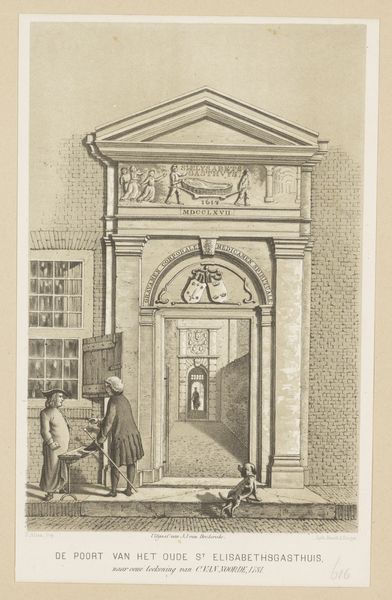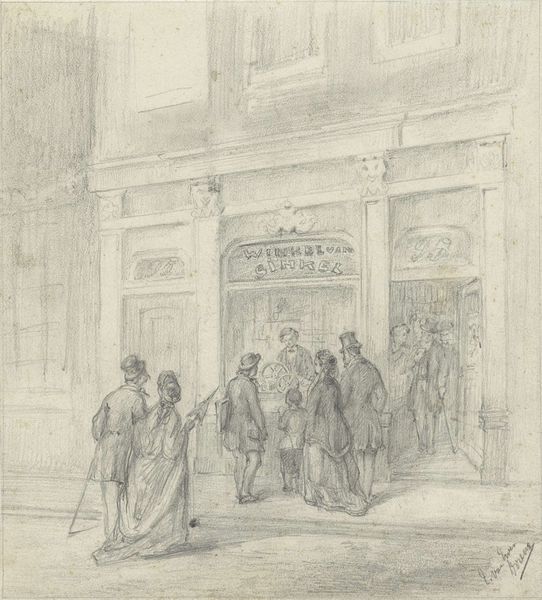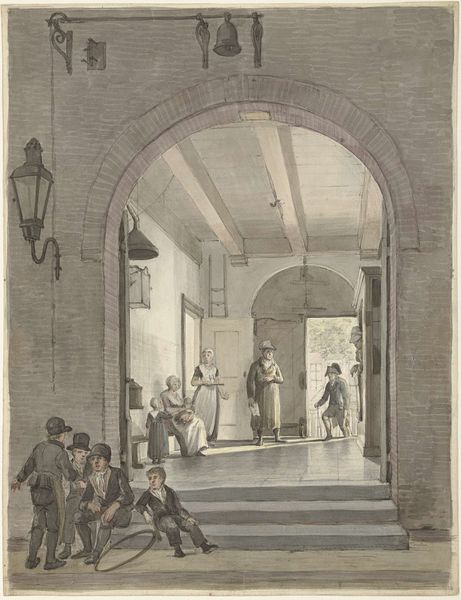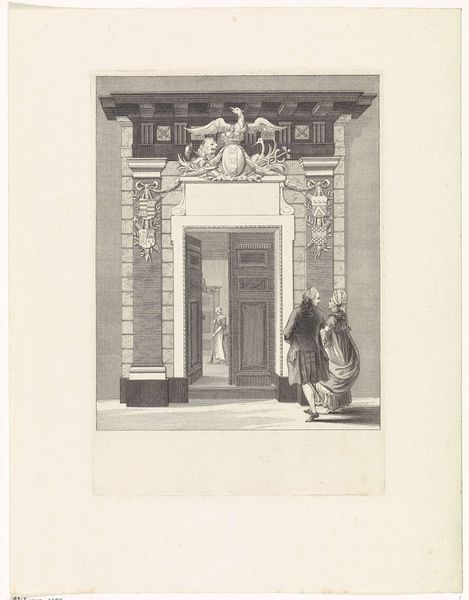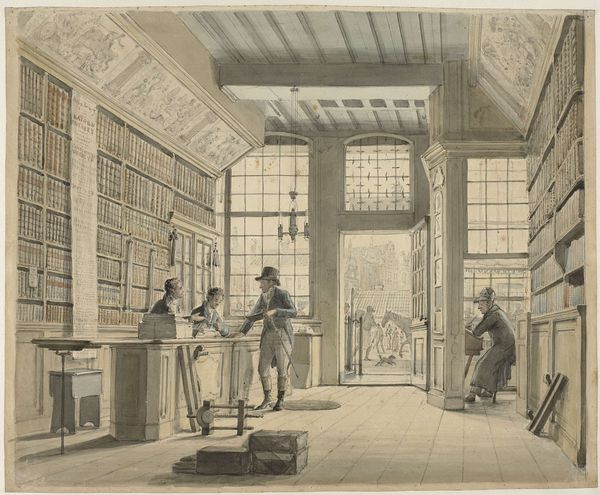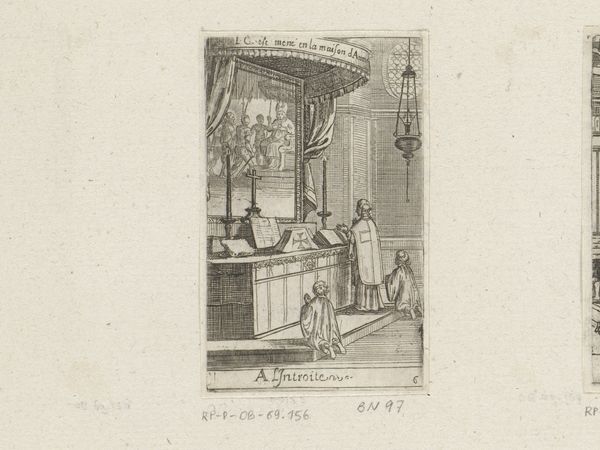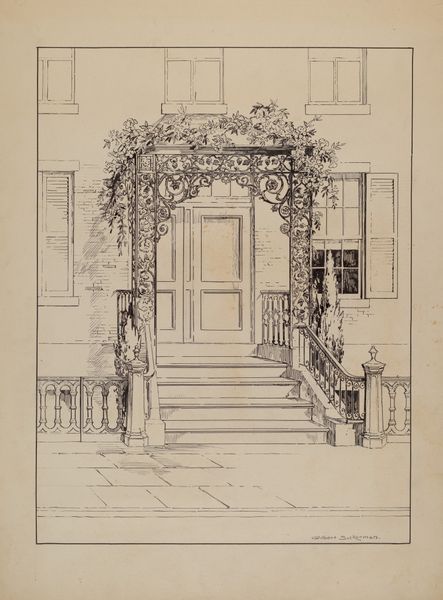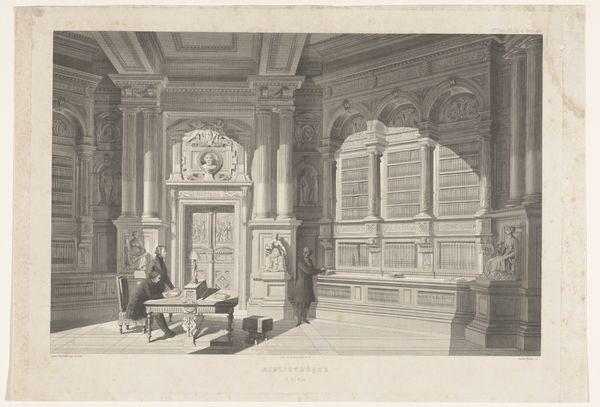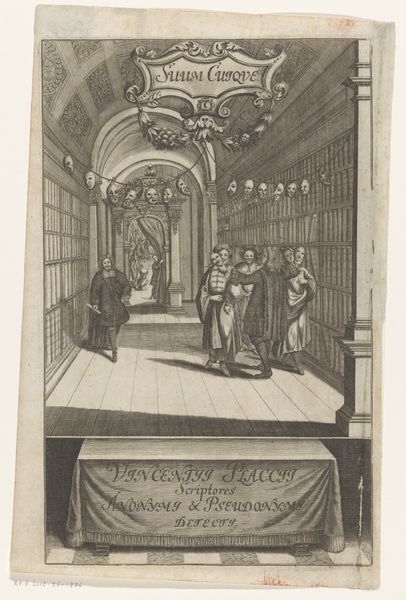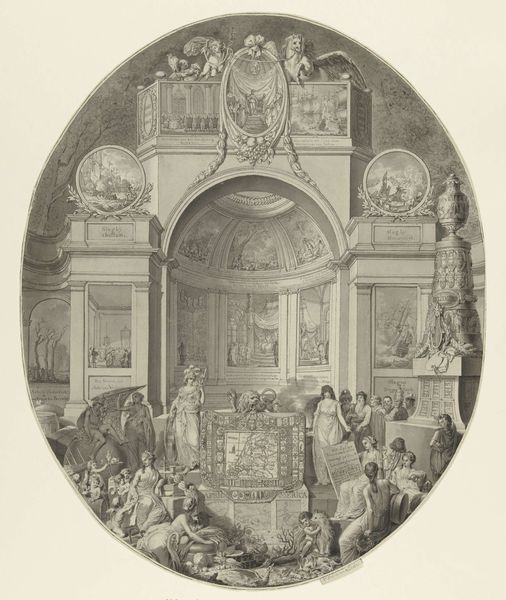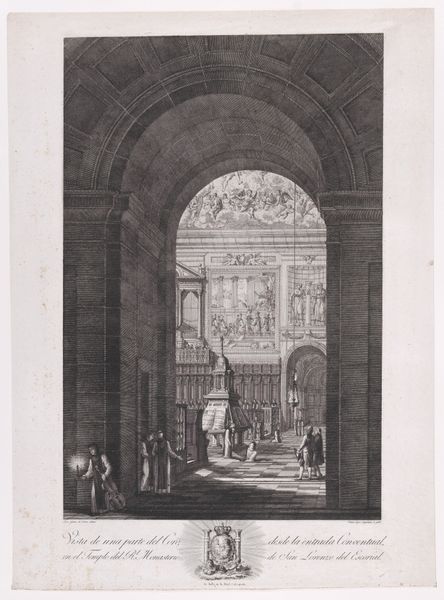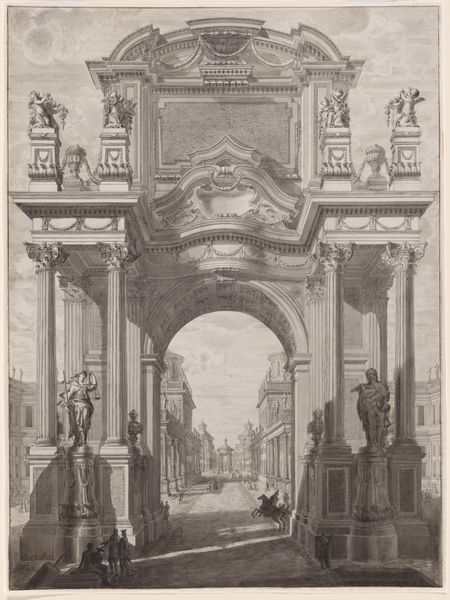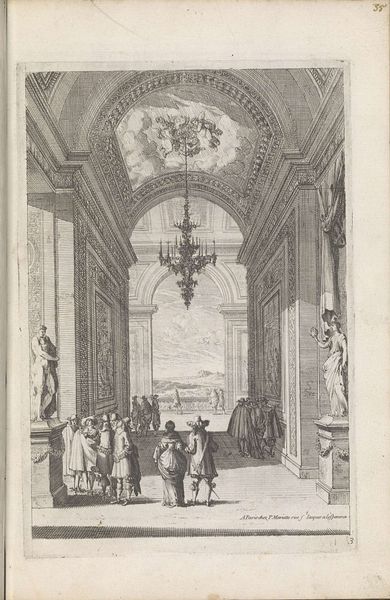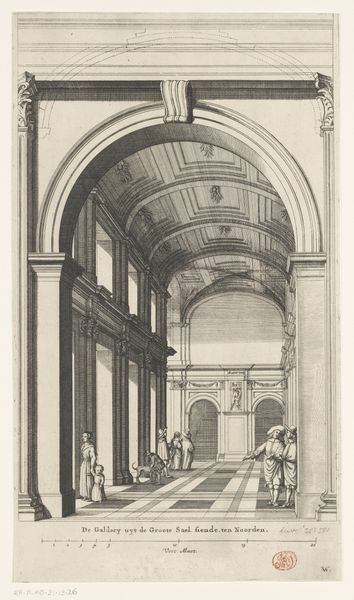
Doorkijk naar de Herenkamer van Evangelisch Lutherse Diaconie en Bestedelingenhuis op de Nieuwe Keizersgracht 1780 - 1836
0:00
0:00
johannesjelgerhuis
Rijksmuseum
drawing, paper, ink, architecture
#
architectural sketch
#
drawing
#
paper
#
ink
#
architectural drawing
#
architecture drawing
#
genre-painting
#
northern-renaissance
#
architecture
Dimensions: height 511 mm, width 398 mm
Copyright: Rijks Museum: Open Domain
Johannes Jelgerhuis created this drawing of the Herenkamer, or gentlemen's room, of the Lutheran Deaconry in Amsterdam with pen in gray and brown and brush in gray. In the Netherlands, Deaconries, such as this one, were charitable institutions of the Protestant church that cared for the poor and the sick. Jelgerhuis depicts a large room with children playing in the foreground. Through an open door, we see another room where women, presumably caretakers, are gathered. Above the doorway are inscriptions and heraldic symbols. Heraldry, inscriptions, and architecture were used to communicate authority and legitimacy and were important features of Dutch institutional identities. As historians, we can ask: what was the relationship between religious institutions and social welfare in the Netherlands at this time? How were these relationships represented visually? What was the social role of art in shaping public perceptions of these institutions? By consulting archives, architectural plans, and other historical documents, we can understand the complex social and institutional contexts that gave meaning to works of art such as this one.
Comments
No comments
Be the first to comment and join the conversation on the ultimate creative platform.
